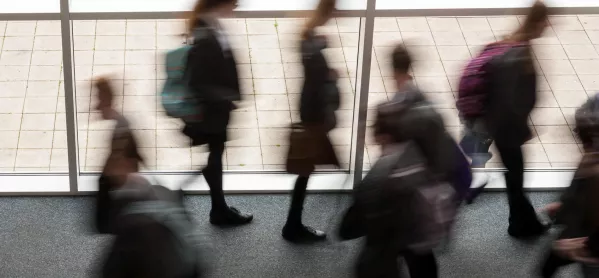
- Home
- It’s time to ask again: Why don’t students like school?
It’s time to ask again: Why don’t students like school?

Ten years ago, Daniel Willingham published Why Don’t Students Like School? The book was a major factor in prompting the research revolution in the UK, where government policy and schools began using research evidence far more to inform decisions.
Willingham influenced a range of authors, such as Daisy Christodoulou, and organisations like Tom Bennett’s ResearchED, that have raised the status of research. There’s a flourishing subsection of Twitter – EduTwitter – that shares research and strategies for its application into the classroom context.
Cumulatively, cognitive science’s application has undoubtedly improved teaching and learning in schools. There’s now a firmer basis to influence the teacher’s craft and much of it is highly accessible. Educational myths are gradually being slayed, from learning styles to the belief that skills don’t rely on knowledge. Like many, I only wish the research revolution would inform teacher training more.
Nonetheless, nothing in the research movement really addresses the nub of Willingham’s original and urgent question of why don’t students – or at least far too many – like school? According to a new report by the NASUWT teaching union, one in four teachers "experience violence from pupils every week", including being punched or kicked. The issue needs proper engagement.
Willingham suggests that "if school work is always just a bit too difficult for a student, it should be no surprise that they don’t like school much". A teacher can help students to like school more by ensuring a "student experiences the pleasurable rub of solving a problem". However, is successful problem solving really sufficient to help students like their school and value the education they receive?
It is something of a puzzle: students and staff should converge on the shared incentive of ensuring the highest quality education possible. Yet there can be a chasm between them. There are varying degrees, of course, but every school has some students who dislike it, with some locked into the attitude of "this school is out to get me".
Some will say a certain level of apathy is expected. Their parents are disillusioned by education. Teenage angst can manifest in an anti-institutional disposition. But this is an abdication of responsibility. In schools that are struggling, one consistency between them will be that students, and possibly staff, dislike it. Further, the research revolution becomes irrelevant: all that evidence-informed planning falls by the wayside if a student does not like the teacher and what they represent. Willingham himself says that one of two key factors for student learning is the emotional bond between students and teacher. So how can schools nurture these bonds between student and teacher and students and school?
Schools need to explicitly nurture institutional pride, through enrichment and the invention of traditions. Experiences outside the classroom are key to developing relationships where no longer is the staff member just a classroom teacher. Traditions need to be designed that foster a sense of belonging and school identity.
The psychologist Jonathan Haidt suggests communal chanting can contribute to this. On a recent trip with Year 11s some started singing the school song. It hasn’t been used since they were in Year 7, yet they could recall it still, half mockingly but also affectionately. Events can be created that become termly or annual traditions, such as a talent show or "staff vs students" charity sports match. Chip and Dan Heath in The Power of Moments describe how moments that are both memorable and meaningful can define the perception of an experience like school. Schools could be more explicit in designing these moments for students to savour that become part of the fabric of the school.
Character education can be a fantastic means to nurture appreciation of school and foster relationships. Earlier this academic year my school had Gratitude Week. Students expressed gratitude in assemblies to teachers, parents or friends. Every student received a thank you card to write to a staff member.
Character education also emphasises the importance of student leadership in influencing perception of school. Graham Nuthall’s The Hidden Lives of Learners observed the interaction of students in the classroom and showed that opinions from students were more important and better believed than the teacher’s. Idols are hugely powerful influences: students take social cues from other students, particularly older ones.
Perhaps in the schools’ budget squeeze all this might seem an indulgence. But much of the above depends on effort and delivery, not excessive cost. With growing exam pressures from a more challenging GCSE we are in danger of losing sight of the broader purpose of education. It is all the more important that schools nurture fondness of school, to help students see their school exists for more than getting them grades.
The research revolution is welcomed, but it has its limits. There needs to be more writing, discussion and sharing of best practice to help more young people feel proud of their school.
Adam Seldon is a secondary school history teacher and head of character, charity trustee and writer. He tweets at @adamJseldon
Register with Tes and you can read five free articles every month, plus you'll have access to our range of award-winning newsletters.
Keep reading for just £4.90 per month
You've reached your limit of free articles this month. Subscribe for £4.90 per month for three months and get:
- Unlimited access to all Tes magazine content
- Exclusive subscriber-only stories
- Award-winning email newsletters
You've reached your limit of free articles this month. Subscribe for £4.90 per month for three months and get:
- Unlimited access to all Tes magazine content
- Exclusive subscriber-only stories
- Award-winning email newsletters

